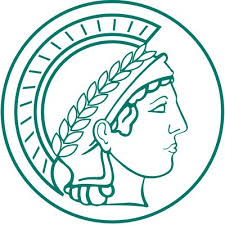Current core projects (CPs) of the CAL2-group
- CAL²Lab - An interdisciplinary research and experimenting platform for empirical analysis of the terminological systematics in the legal domain
This follow-up project of JuReko (see below) is also funded by the Academy of Science (Heidelberg). Making use of the CAL² Corpus of German Law compiled in the last project, we will build a platform to explore the legal language and semantics through empirical anlysis.
» Read more
- Legal Reference Corpus of German Law / Juristisches Referenzkorpus (JuRekode)
In this core project we develop both the first reference corpus of German law texts and computer assisted methods for empirical studies about the macro structures of German legal dogmatics and language. This project is supported by the Academy of Science.
» Read more: in English or in German
- Speech patterns in German and British labor law - A comparative pilot study.
This project expands the approach of JuReko and adds a comparative perspective in computer assisted legal linguistics. Using the example of labor law in Germany (constitutional law) and Great Britain (case law) we are developing an additional corpus with English legal texts and explore the common ground as well as differences in European legal language and semantics.
» Read more
Five further core projects have been currently prepared and will be published soon.
The following projects are associated projects of the CAL2-group
- The constitution of German labor law: An empirical and interdisciplinary study using corpus linguistics (completed)
The legal linguist Friedemann Vogel and the lawyers Ralph Christensen and Stephan Pötters had explored the notion of "employee" ("Arbeitnehmer") in German labor law using computional methods and a huge corpus of court decisions with 10.000 texts. The results are published in: Vogel, Friedemann; Christensen, Ralph; Pötters, Stephan (2015): Richterrecht der Arbeit – empirisch untersucht. Möglichkeiten und Grenzen computergestützter Textanalyse am Beispiel des Arbeitnehmerbegriffs. Berlin: Duncker & Humblot. »
Read more about the publication - Argumentation mining for German legal decisions (in progress)
PhD-project of Florian Kuhn M.A. (Computational Linguistics); the two main goals of the project: To build a gold-standard corpus of German legal decisions and to apply state of the art machine learning techniques to this corpus to retrieve models for argumentative sequence labelling and structure identification. - Empiric linguistics in Law, Development of a Legal Reference Corpus of Swiss Law (2015–2016) - Prof. Dr. iur. Andreas Abegg, LL.M.
The pilot-project (“changes in the concept of the state”) focused on certain limited legal areas. The newly developed legal corpora should enclose the whole Swiss law to improve the explanatory power of the researches. The present project is aimed to provide an empiric-linguistic corpora and does not contain a scientific question. - Changes in the concept of the state (2012–2015) - Prof. Dr. iur. Andreas Abegg, LL.M.
The project granted by the Swiss national science foundation (SNSF) examined in a connection of juridical analysis and empiric linguistics how the argument “changes in the concept of the state” has changed (developed) in the areas of social law, public economic law and security law over the years. - International Commercial Arbitration Practices: A Discourse Analytical Study (HKSAR CERG 9041191) (2007-2011) - Ruth Breeze
Drawing on narrative, documentary and interactional data, this project investigates the extent to which the integrity of arbitration principles is maintained in arbitration practice. The project focusses on the nature and the extent of the colonization of commercial arbitration practices by litigation practices in international contexts, and explores the motivations for such an interdiscursive process. - The EUROLEKT project: The EU variant of Polish and its impact on administrative Polish (Sonata BIS, 2015-2018) - Dr hab. Lucja Biel
The first objective of the project is to investigate the Polish eurolect across four genres - legislation, EU judgements, administrative reports and websites addressed to citizens against the background of corresponding national genres. The second objective is to analyse how the eurolect affects Polish across national genres.
Project website: http://eurolekt.ils.uw.edu.pl under construction - The EUROFOG project: Corpus-based study of legal collocations (2010-2012) - Dr hab. Lucja Biel
The objective of the project was to analyse the textual fit of translated EU law against national law.
- Automated detection of style rule violations in legislative texts (2011-2015) - Dr. Stefan Höfler
This project, funded by the Swiss National Science Foundation (SNSF), was a co-operation between the Centre for Legislative Studies and the Institute for Computational Linguistics of the University of Zurich. It aimed at developing methods by which violations of the formal and linguistic requirements specific to legislative drafting can be detected automatically. The project focused on German-language legislation in Switzerland. (More information: http://www.research-projects.uzh.ch/p22387.htm) - The linguistic construal of evaluative language in American and Italian judicial discourse (2012-2015) - Stanislaw Gozdz-Roszkowski & Gianluca Pontrandolfo
This bilaterial project had two major objectives: 1. To examine the extent to which corpus methods could be used to examine evaluative language in legal settings; 2. To compare the way(s) in which evaluation is construed in the judicial decisions of the US Supreme Court and the Italy’s Corte Suprema di Cassazione.
- EU case law corpus (EUCLCORP) – Aleksandar Trklja and Karen McAuliffe (in progress)EUCLCORP will be a standardised, multidimensional and multilingual corpus of the case law of the Court of Justice of the European Union (CJEU) and of the constitutional/supreme courts of EU member states. The corpus will be coded linguistically and with metadata to enable stakeholders such as lawyers, legal translators, lexicographers and linguists, as well as academics to compare meanings of terms across languages and legal systems, to compare translation options and monitor the consistency of translation in EU case law. Furthermore, EUCLCORP will allow users to track the migration of terms between legal systems and to create data-driven legal dictionaries and terminological databases. (More Information: project website)
- Law and Language and the European Court of Justice (LLECJ) – Karen McAuliffe and Aleksandar Trklja
The overarching aim of the LLECJ project is to elaborate a new understanding of the development of EU law by examining the process behind the production of the multilingual jurisprudence of the Court of Justice of the European Union (ECJ). (More information: project website)


